
ISME Communications
Scope & Guideline
Advancing Environmental Microbiology for a Sustainable Future
Introduction
Aims and Scopes
- Microbial Ecology and Diversity:
The journal focuses on the diversity of microbial species across various ecosystems, exploring how different environmental factors influence microbial community structures and functions. - Metagenomics and Genomic Insights:
Significant attention is given to metagenomic studies that reveal the genetic potential of microbial communities, enhancing the understanding of their ecological roles and interactions. - Microbial Interactions and Symbiosis:
Research on the interactions between microbes, including symbiotic relationships and competition, provides insights into community dynamics and ecosystem functioning. - Biogeochemical Cycles and Environmental Impact:
The journal emphasizes studies linking microbial processes to biogeochemical cycles, highlighting the role of microbes in nutrient cycling, carbon fixation, and ecosystem health. - Novel Methodologies in Microbial Research:
ISME Communications promotes innovative research methodologies, including machine learning, single-cell genomics, and advanced sequencing techniques to dissect complex microbial communities.
Trending and Emerging
- Microbiome Interactions with Climate Change:
Research exploring how microbial communities respond to climate change, including shifts in community composition and function, is gaining traction as the implications for ecosystem health and resilience become clearer. - Multi-Omics Approaches:
The integration of genomics, transcriptomics, proteomics, and metabolomics is on the rise, allowing for a more holistic understanding of microbial community dynamics and their functional capacities. - Microbial Roles in Sustainable Agriculture:
There is an increasing focus on the role of microbial communities in promoting sustainable agricultural practices, including soil health, plant growth promotion, and bioremediation. - Microbial Contributions to Human Health:
Research linking microbial communities to human health outcomes, particularly in the context of gut microbiomes and their influence on diseases, is emerging as a significant area of interest. - Machine Learning in Microbial Ecology:
The application of machine learning techniques to analyze complex microbial datasets is trending, enhancing the capability to predict microbial interactions and community dynamics.
Declining or Waning
- Traditional Culture Techniques:
Research utilizing traditional microbial culturing methods has decreased, as there is a growing preference for molecular techniques that provide a more comprehensive view of microbial diversity. - Microbial Pathogen Studies:
Although important, publications focusing solely on pathogenic microbes have waned in favor of broader ecological studies that incorporate the roles of beneficial and neutral microbes in ecosystems. - Single-Species Studies:
There is a noticeable decline in studies concentrating on single microbial species, as the field increasingly recognizes the importance of community-level interactions and multi-species dynamics. - Static Environmental Assessments:
Research that focuses exclusively on static assessments of microbial communities without considering temporal dynamics or environmental changes is becoming less common.
Similar Journals
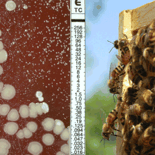
mBio
Advancing microbiology through open access innovation.mBio is a premier, peer-reviewed open-access journal published by the American Society for Microbiology, dedicated to advancing the field of microbiology and virology. With an impressive impact factor and a commendable standing within the top quartiles (Q1) of both microbiology and virology categories as of 2023, mBio offers a dynamic platform for researchers and professionals to disseminate high-quality, rigorous scientific findings. Since its inception in 2010, it has served as a vital resource for the global scientific community, facilitating open access to groundbreaking research that spans diverse topics within microbiology. With a Scopus ranking of #28 out of 182 in Microbiology and #16 out of 80 in Virology, mBio significantly influences ongoing research trends and informs best practices in the field. Its commitment to open-access publishing allows for widespread visibility and accessibility, ensuring that critical discoveries reach a broad audience, including students and academics eager to contribute to, and learn from, cutting-edge science.
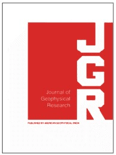
Journal of Geophysical Research-Biogeosciences
Pioneering Research on Ecosystem Health and Environmental Change.Journal of Geophysical Research-Biogeosciences, published by the American Geophysical Union, is a premier academic journal dedicated to advancing our understanding of biogeochemical processes and their interactions within Earth's systems. With an impressive impact factor reflective of its rigorous peer-review process and outstanding scholarly contributions, the journal ranks in the Q1 quartile across a multitude of essential categories, including Aquatic Science, Atmospheric Science, Ecology, Forestry, Paleontology, Soil Science, and Water Science and Technology, highlighting its significance in multidisciplinary research. Researchers, professionals, and students alike will find invaluable insights and comprehensive studies that facilitate a deeper understanding of environmental changes and ecological dynamics. For those interested in open access options, it provides valuable networking among leading experts in the field, especially for collaborative research that aims to address critical global challenges related to climate change and ecosystem health. This journal serves as a key resource for anyone involved in geophysical and biogeosciences, making significant contributions toward the sustainability and management of Earth's biogeochemical cycles.

CANADIAN JOURNAL OF MICROBIOLOGY
Advancing Microbial Knowledge Since 1954The Canadian Journal of Microbiology, published by Canadian Science Publishing, is a well-respected journal established in 1954 that serves as a vital platform for advancing knowledge in the fields of microbiology and related disciplines. With an ISSN of 0008-4166 and an E-ISSN of 1480-3275, this journal is recognized for its rigorous peer-review process and its commitment to disseminating high-quality research that spans applied microbiology, biotechnology, genetics, immunology, and more. Currently indexed in several prestigious databases, its impact factor and category quartiles highlight its significance, ranking in the top tiers of applied microbiology and biotechnology as well as other intersecting fields. The journal provides an essential resource for researchers, professionals, and students seeking to stay informed on the latest advancements and breakthroughs, facilitating collaboration and innovation in the microbiological sciences. Set in the dynamic landscape of academia from its headquarters in Ottawa, Canada, the Canadian Journal of Microbiology remains steadfast in its mission to promote research that addresses key challenges and opportunities within the microbiological community.

ANTONIE VAN LEEUWENHOEK INTERNATIONAL JOURNAL OF GENERAL AND MOLECULAR MICROBIOLOGY
Fostering Collaborative Discoveries in Microbial ScienceANTONIE VAN LEEUWENHOEK INTERNATIONAL JOURNAL OF GENERAL AND MOLECULAR MICROBIOLOGY, published by Springer, is a vital resource for advancing research in the fields of microbiology and molecular biology. With its ISSN 0003-6072 and E-ISSN 1572-9699, this journal consistently focuses on cutting-edge studies and developments, providing a platform for the dissemination of knowledge that spans over its rich history from 1934 onwards. The journal holds an impressive reputation, ranked Q2 in Medicine (miscellaneous) and Q3 in both Microbiology and Molecular Biology for 2023, reflecting its significant contribution to the scientific community. Researchers and professionals from various disciplines rely on this journal for quality publications that address complex microbial interactions and molecular mechanisms. Although it currently does not provide open access options, its compelling research remains accessible through institutional subscriptions, allowing it to foster collaborative advancements in the ever-evolving landscape of microbiological sciences.
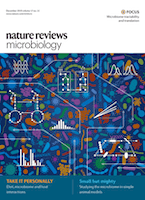
NATURE REVIEWS MICROBIOLOGY
Connecting Researchers with Essential Microbial InsightsNATURE REVIEWS MICROBIOLOGY, published by NATURE PORTFOLIO, stands as a leading journal in the field of microbiology, distinguished by its Q1 ranking in multiple categories, including Immunology, Infectious Diseases, and Microbiology for 2023. With an impressive niche impact factor, this journal serves as a vital resource for researchers, professionals, and students seeking comprehensive and cutting-edge reviews on various aspects of microbiology and immunology. Operating from the United Kingdom, the journal covers a wide range of topics reflecting the rapid advancements in the field, while maintaining rigorous editorial standards. Although it does not offer open access, the journal’s articles are essential for anyone aiming to stay at the forefront of microbial research and infectious disease studies. Established in 2003, it continues to thrive as a premier source of knowledge, offering critical insights into ongoing microbial challenges and innovations in research, thereby contributing significantly to our understanding of microbiological complexities.
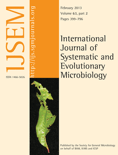
INTERNATIONAL JOURNAL OF SYSTEMATIC AND EVOLUTIONARY MICROBIOLOGY
Advancing Knowledge in Systematics and EvolutionInternational Journal of Systematic and Evolutionary Microbiology, published by the Microbiology Society, stands at the forefront of microbiological research, focusing on the systematic and evolutionary aspects of microorganisms. With its ISSN 1466-5026 and e-ISSN 1466-5034, this prestigious journal not only boasts an impressive impact within its fields—ranked Q1 in both Ecology, Evolution, Behavior and Systematics and Medicine (Miscellaneous), and Q2 in Microbiology for 2023—but also consistently provides an open access platform for researchers to disseminate their findings. Established in 2000, the journal has established itself as an essential resource for professionals and students alike, offering insights into microbial diversity, systematics, and evolutionary pathways. By providing a rich repository of knowledge with a global reach from its UK base, IJSEM continues to enhance our understanding of the microbial world, fostering collaboration and innovation in microbiological science.
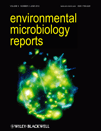
Environmental Microbiology Reports
Innovating Solutions for a Sustainable Future through MicrobiologyEnvironmental Microbiology Reports, published by WILEY, is a prestigious journal dedicated to the field of environmental microbiology, exploring the intricate interactions between microorganisms and their environments. With an ISSN of 1758-2229, this journal has established itself as a crucial resource for researchers, professionals, and students interested in the latest advancements and applications in microbial ecology, soil science, and environmental sustainability. Since its inception in 2009, the journal has grown in impact and reputation, proudly ranked in the Q1 category for both Agricultural and Biological Sciences and Ecology, Evolution, Behavior and Systematics as of 2023. Notably, it occupies the 17th position out of 193 in its subcategory based on Scopus rankings, showcasing its significance within the field. Although it does not currently offer open access options, the high-quality research published in this journal continues to contribute significantly to the understanding of microbial roles in environmental processes, emphasizing the vital role of microbes in maintaining ecosystem health and promoting sustainable practices.

npj Biofilms and Microbiomes
Pioneering Insights into Microbial Communities and Their Impactnpj Biofilms and Microbiomes, published by Nature Portfolio, is a premier open-access journal that has been at the forefront of research since its inception in 2015. With an impressive impact as reflected by its 2023 category quartiles, ranking in the Q1 tier for Applied Microbiology and Biotechnology, Biotechnology, and Microbiology, this journal plays a pivotal role in disseminating high-quality research focused on the intricate relationships between biofilms and microbial communities. Situated in the United Kingdom and backed by the esteemed Nature Publishing Group, it readily appeals to the academic community, providing a platform for innovative and interdisciplinary studies. By fostering accessibility, it enables researchers, professionals, and students to explore the latest advancements in microbiome research and its application across various sectors. The journal's commendable Scopus rankings further underscore its significance within the scientific dialogue, ranking in the top percentile across the disciplines of microbiology. As it continues to evolve with a converged publishing model through 2024, npj Biofilms and Microbiomes remains a vital resource for those engaged in the quest to understand and harness the potential of microbial ecosystems.

Soil Ecology Letters
Advancing the Frontiers of Soil ScienceSoil Ecology Letters, published by SpringerNature, is a premier journal dedicated to advancing the knowledge and understanding of soil ecosystems, their functions, and their vital role in global sustainability. Since its inception in 2019, this leading journal has consistently maintained its prestigious Q1 ranking in Ecology, Evolution, Behavior and Systematics, as well as Soil Science, reflecting its significant impact in the ecological and environmental sciences community. With an impressive Scopus ranking that places it within the top percentile of journals in its field, Soil Ecology Letters provides a platform for researchers and professionals to disseminate their groundbreaking findings. The journal is a vital resource for advancing research in agricultural and biological sciences, offering open access options that promote widespread dissemination of knowledge. With its focus on fostering collaboration and innovation in soil ecology, this journal is essential reading for anyone aiming to deepen their understanding of soil environments and their critical role in ecological health.

Biogeosciences
Advancing knowledge in biogeosciences for a sustainable future.Biogeosciences, published by COPERNICUS GESELLSCHAFT MBH in Germany, is a prestigious open access journal that has been a leading platform for innovative research since its establishment in 2004. With an impressive impact reflected in its Q1 rankings within both the Earth-Surface Processes and Ecology, Evolution, Behavior and Systematics categories, it caters to a diverse readership encompassing researchers, professionals, and students engaged in the life sciences and earth sciences. The journal's commitment to disseminating high-quality research is evident from its exemplary Scopus rankings, highlighting its role in fostering advancements and discussions in biogeoscience. With full open access options, readers worldwide can freely explore significant findings that contribute to our understanding of ecological and geoscientific principles. As the journal converges into its next decade, it continues to be an essential resource for those seeking to bridge the disciplines of biology and earth sciences.